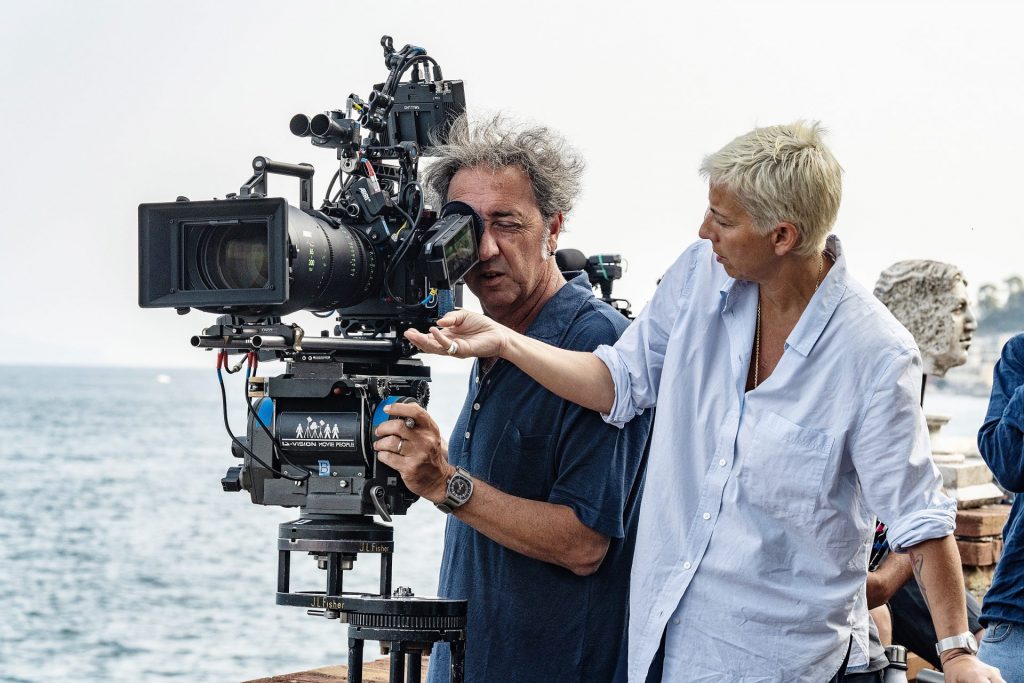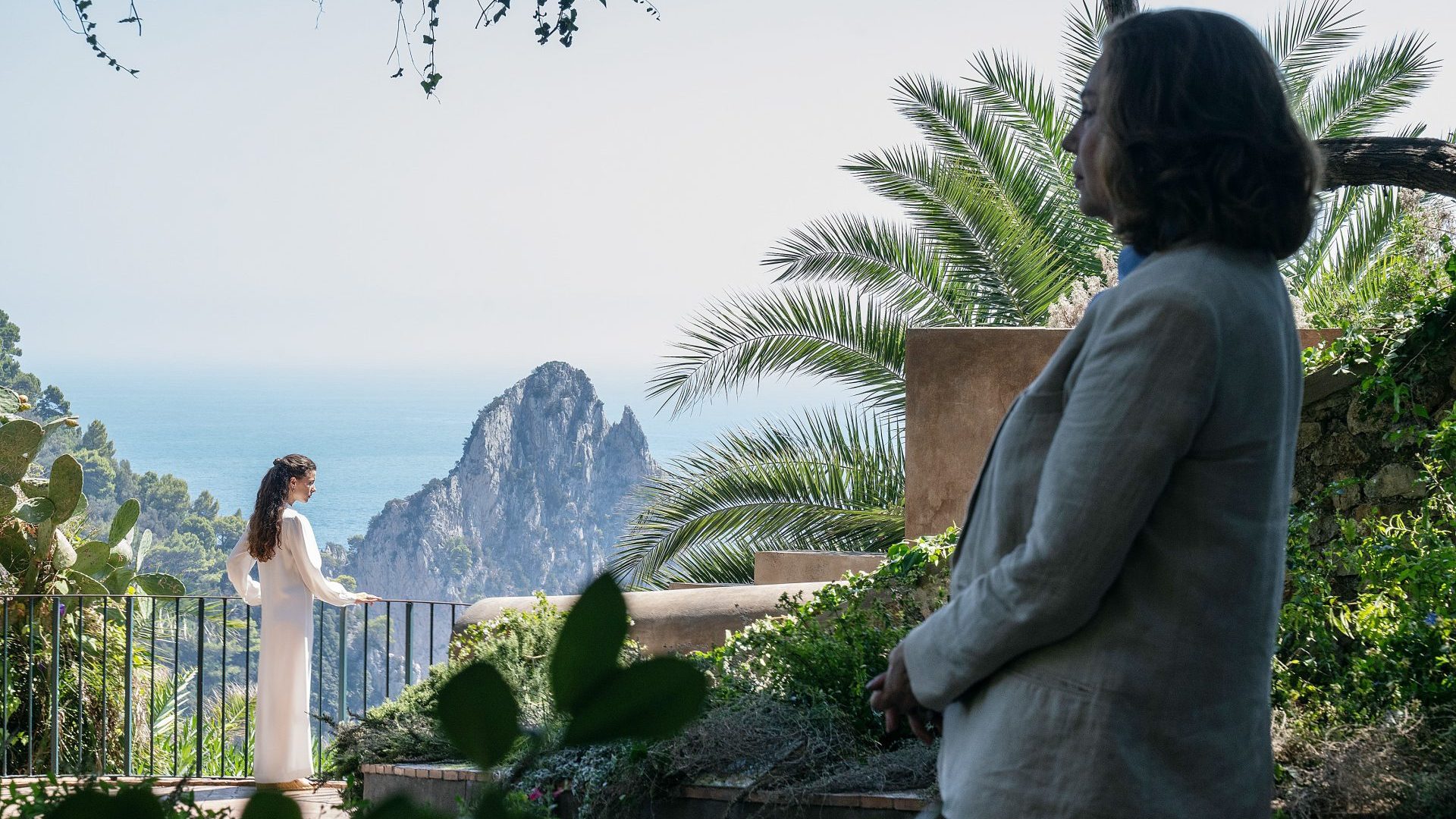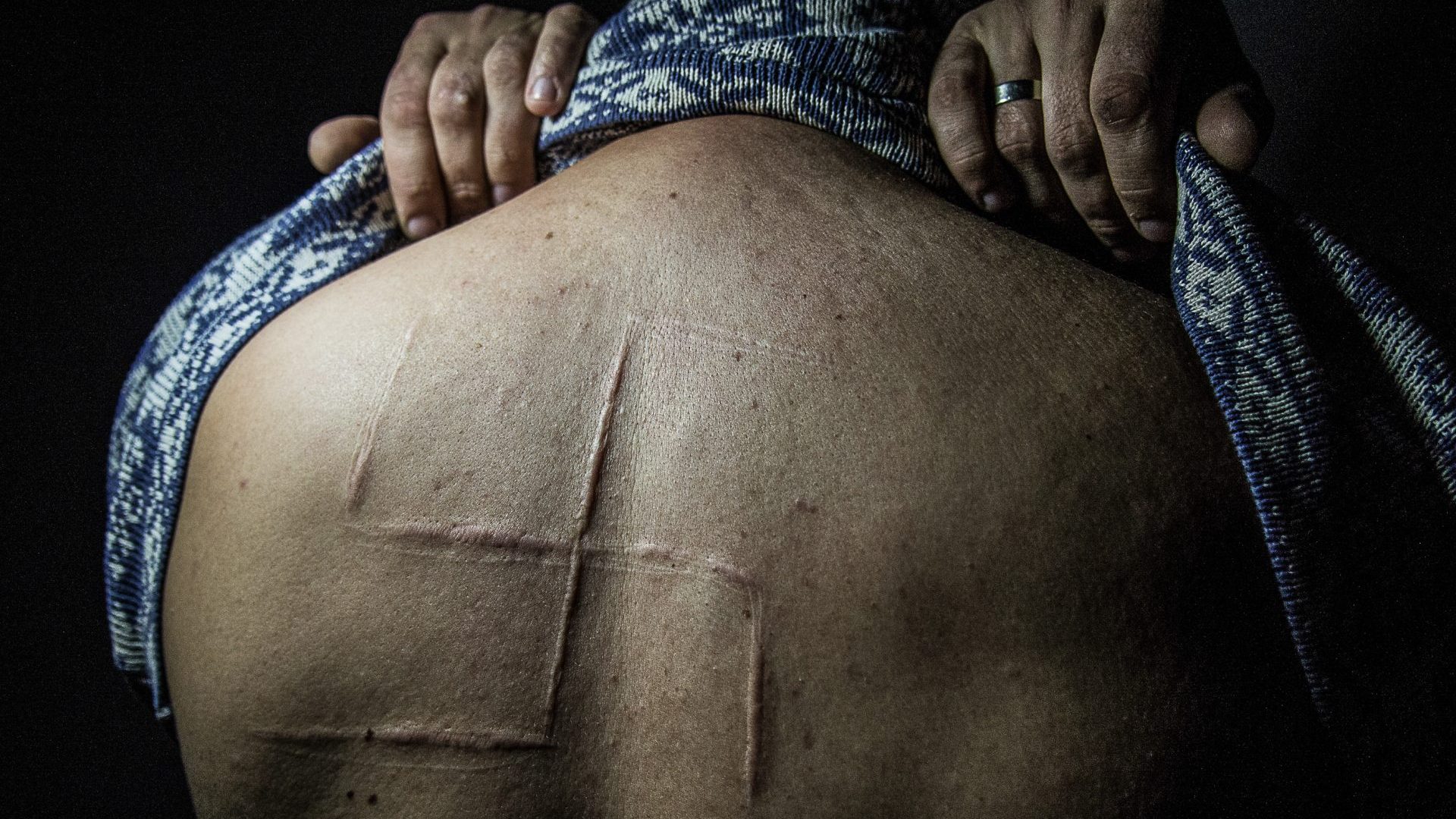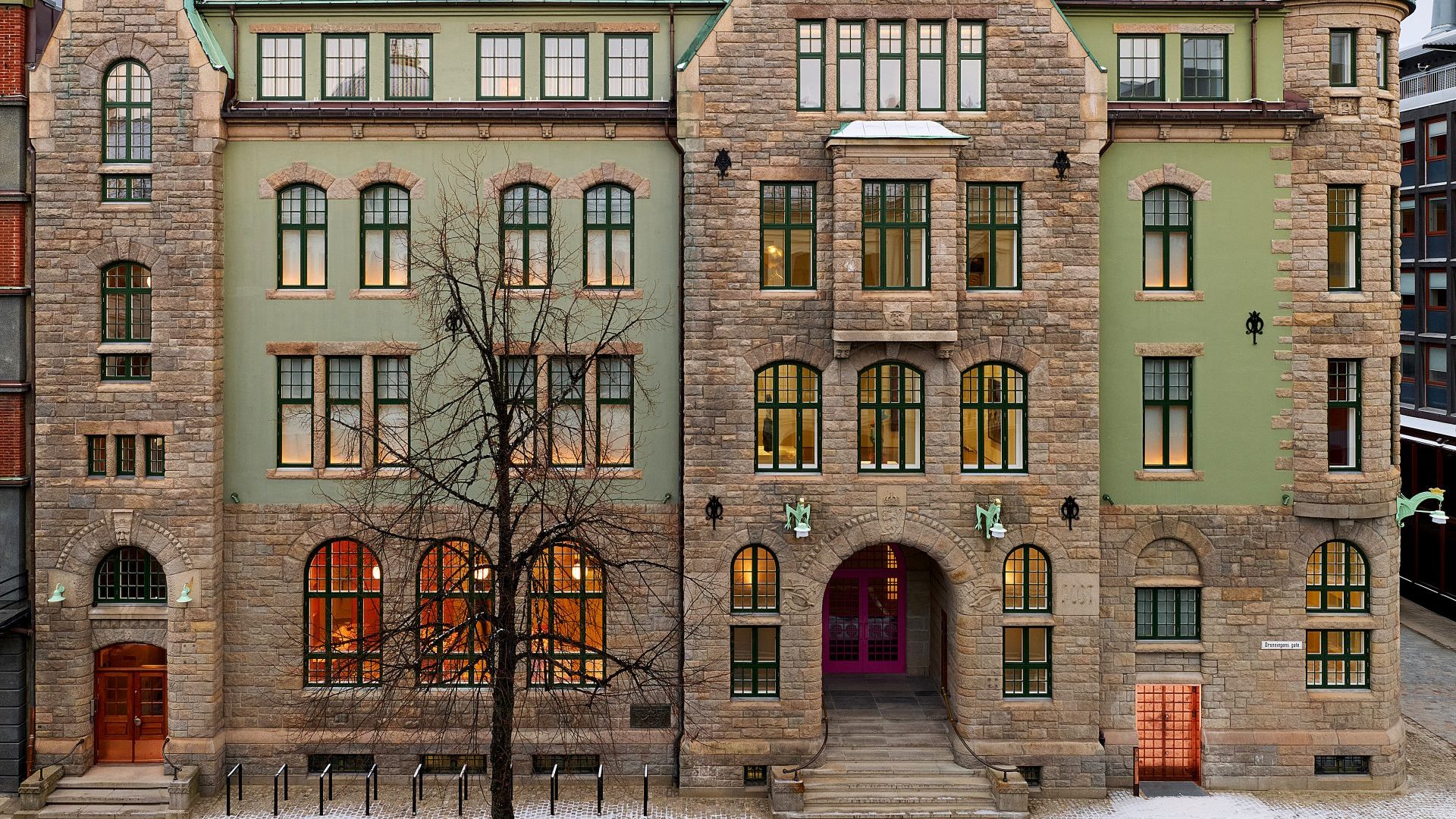“What are you thinking?” It’s a question asked several times in Paolo Sorrentino’s new film, Parthenope, as the eponymous protagonist, played in a star-making turn by Celeste Dalla Porta, seeks freedom in 1960s-70s Naples. It’s a question I ask the Italian director when we talk over Zoom.
Because of scheduling problems, I’m sitting in my car in a motorway service station in Italy, as Sorrentino, somewhere else in the Bel Paese, smokes a Toscana cigar and enjoys an early-morning coffee. “What am I thinking in general?” he asks, amused. “I’m thinking about how to achieve the greatest serenity in life. Free myself from the silly things.”
Parthenope is a beautiful film – Sorrentino makes beautiful films – and Parthenope is a beautiful and vibrantly enigmatic young woman, an obscure object of desire for various would-be lovers, as well as Sorrentino’s camera, which has taken the idea of the “male gaze,” not as feminist criticism but as an imperative to pole vault with horny enthusiasm into her boudoir.
This is the first time a Sorrentino film has had a female protagonist. I ask the director what he learned from seeing the world from that perspective.

“Unfortunately, I’m not very intelligent and so I don’t learn much,” he says as he sips his coffee. “I wanted to have a female protagonist because the style of the film was epic and in these epic-sized tales, the voice is almost always male and this is perhaps something that has had its time. It’s tiresome and repetitive. In recent years, women are taking part in epic moments much more than men, so it seemed natural that this time the main character was a woman.”
Sorrentino is the most internationally celebrated Italian film-maker of his generation (Luca Guadagnino is a close second but, I’d argue, has become more international than Italian). His films have earned him a slew of awards from Cannes and Venice as well as a Golden Globe and an Oscar for The Great Beauty in 2014.
He produced and directed a popular TV show, The Young Pope, starring Jude Law, which was followed by The New Pope. He attracts international casts eager to work with him. He’s made two forays into English language cinema with This Must Be the Place, starring Sean Penn as a gothy rock star à la the Cure’s Robert Smith, and Youth, starring Michael Caine and Harvey Keitel.
In his latest, Gary Oldman turns up as a twinkly-eyed, drink-sodden John Cheever; a favourite writer of Sorrentino’s who spent time in Capri. “Cheever is a man who suffered in his relationship with freedom. You can see that very clearly if you read his diaries. The film is focused on a woman searching for the ecstasy of freedom so it seemed interesting to have her meet a man who longed for freedom but was imprisoned by his principles and culture, and so can’t be free,” says Sorrentino. “Gary Oldman was a joy. I find working with great talent like Gary makes everything easier. Talent walks hand in hand with simplicity.”
Parthenope takes Sorentino back home to Naples once more. It’s a cliche to say a city is a character in a film, but in this case the cliché happens to be true. As well as the name of the protagonist, Parthenope is also the name of the Greek settlement on which Naples was founded.
Sorrentino gazes lovingly at the baroque beauty of the city and the cerulean waters of its bay (we could call it Sorrentino blue, perhaps) because he is yearning for the home where he was born and raised. And like Parthenope in the film, he too suffered a family tragedy when he was young.
The director lost his parents when a stove malfunctioned and they were poisoned by carbon monoxide. He should have been with them that weekend but they had finally relented to his pestering and allowed him to go and see his beloved Napoli play an away game for the first time. “Maradona saved my life,” he would later recount.
The trauma became the inspiration for his 2021 film The Hand of God, his most straightforwardly autobiographical work. I wonder if this film is also an autobiography, an alternate reality. Sorrentino doesn’t think so.
“After Hand of God, there were things about Naples I still wanted to say, but I didn’t really think of it as autobiographical. Like many films, some things are invented and some things happened in your life. You shuffle the cards of your life, the lives of others and inventions and see what you get.”
Having started a degree in business at the University of Naples, Sorrentino turned to film-making, first as a screenwriter then as a director. His debut One Man Up in 2001 starred his frequent collaborator Tony Servillo who would also star in his follow ups The Consequences of Love and Il Divo, which was the film that first saw Sorrentino break through to an international audience.
Taking the dense conspiratorial interplay of Italian politics in the early 1990s, Servillo plays Giulio Andreotti, former Italian prime minister and a figure who makes Machiavelli look wet behind the ears, as he strives to become Italy’s president. The grime of politics is played out as a stylish thriller with grotesque characterisations and a fantastic soundtrack.
All the elements had fallen into place for Sorrentino’s film-making template. Beautiful, colourful cinematography, camera moves of balletic grace, a lemon squirt of surrealism, a mixture of grotesque flesh and the breathtakingly beautiful bodies, usually female: the gaudy versus the sublime; the kitsch versus the holy; the sordid and the sacred. So far, so Neapolitan.
But, it has to be said, Sorrentino’s strengths often get in the way of his films. Drunk with their own sun-kissed beauty, his shots are often better than his scenes. His characters are better dressed than they are developed – it’s fitting that Yves Saint Laurent is a production partner on Parthenope.
And the dialogue tends to either speechify, or sting with waspish aphorisms. “Don’t you find desire a mystery and sex its funeral?” Parthenope asks a bishop at one point. To which the only reasonable answer can be: “Sorry, what?”
When he made Loro (2018), his epic response to the Silvio Berlusconi years, starring who else but Tony Servillo as signor Bunga-Bunga himself, the film indulged to the point of revelry in the excesses it was criticising. And over all his works capers the long shadow of Federico Fellini’s ghost: something that his compatriots Matteo Garrone (Gomorra and Io Capitano) and Guadagnino (Challengers and Queer) have managed (for the most part) to avoid.
Parthenope, for instance, has the episodic structure of La Dolce Vita, via Terry Southern’s Candy. She experiences a series of encounters: a melancholic anthropology professor (Silvio Orlando), Oldman’s Cheever, a slick businessman, a cosmetically damaged acting teacher, a Camorrista (the Camorra is the Mafia of Naples) and a corrupt cardinal. To top it all, she proves a fatal attraction for her own terminally depressed brother, played by Daniele Rienzo.
But her most enduring love affair is with her home town. Sorrentino’s Naples is a bawdy, magnificent city: the kind of crumbling metropolis whose underbelly has an underbelly. Parthenope experiences its glamour and its decadence, has encounters with the Camorra and the Catholic church.
It is also a place of remarkable self-mythologising, combined with an equally deep vein of self-loathing. When a diva with the Pynchonesque name of Greta Cool (Luisa Ranieri) turns up as special guest at a New Year’s Eve party, she spouts a stream of invective at her adoring fans, declaring that “The problem is you Neapolitans… You are poor, cowardly, whiny, backward.” Cool, herself, though is grotesque, made up to look like a version of Sophia Loren, but hidden behind a wig and goggle-like sunglasses.
But this tough love/sentimental obsession has proved a winning formula in Sorrentino’s native land. Parthenope was a significant commercial success at the Italian box office, even more so than the Oscar-winner, The Great Beauty. Sorrentino is currently filming his next movie, hence the scheduling problems for the interview.
What can he tell me about it? “Almost nothing,” he says. The title, he confirms, is La Grazia (Grace) and it sees him reunite for the seventh time with Servillo. With that our chat is over, and he finishes his coffee and cigar while I sit in my car, wondering how I might achieve greater serenity in my life and free myself from the silly things.
Parthenope is on general release, via Picturehouse Entertainment
John Bleasdale is a writer, film journalist and novelist based in Italy



